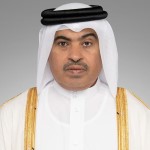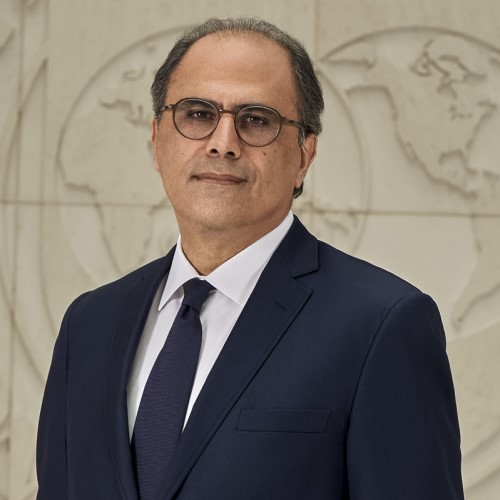Thursday, Oct 12, 2023 | 09:00 AM - 09:30 AM
Location: AB02 Irhoud
REPORT
Blurb:
How is Qatar managing fiscal cycles and anchoring fiscal management into a medium-term framework while creating space for the economic diversification? What is Qatar’s role in international development financing and how is it contributing to multilateral cooperation?
Key Points:
Quotes:
“Qatar is on a journey as diversification towards Qatar Vision 2030 which is something we started many years ago as part of our diversification efforts. The oil and gas revenues are used to diversify the economy and invest in other sectors, invest in the human capital and build a diversified economy, not fully dependent on the oil and gas revenues”. Ali bin Ahmed Al Kuwari
“Human capital is what it is all about for any country; human capital is everything. And we believe in building responsible, reliable citizens for the future. This is what will carry us forward”. Ali bin Ahmed Al Kuwari
Contributor: Najla Nakhle
OVERVIEW
A conversation between IMF’s Director of the Middle East and Central Asia Department Jihad Azour and Minister of Finance of Qatar Ali bin Ahmed Al Kuwari.
The discussion will center on these three issues:
• Managing the post-World Cup fiscal cycle.
• Qatar’s medium-term strategy to achieve National Vision 2030
• Qatar’s more active global role in international development financing
PANELIST

Ali bin Ahmed Al Kuwari
Minister of Finance, Qatar
H.E. Ali bin Ahmed Al Kuwari has extensive experience in government and the financial industry, spanning over 30 years. Prior to being appointed as the Minister of Finance in October 2021, he held the position of Minister of Trade and Industry. H.E. became QNB Chief Executive Officer in July 2013 and held this position until 2018.
Professional Experience
Minister of Finance
October 2021- till present
Minister of Commerce & Industry Acting Minister of Finance
May 2021 – October 2021
Minister of Commerce & Industry
November 2018 – October 2021
QNB Chief Executive Officer
July 2013 – November 2018
Board Memberships
Chairman of Qatar National Bank
Chairman of Qatar Development Bank
Chairman of Katara Hospitality
Member of The Supreme Council of Economic Affairs and Investment
Board member of Qatar Investment Authority
QatarEnergy Board Member
MODERATOR

Jihad Azour
Director of the Middle East and Central Asia Department
Mr. Jihad Azour is the Director of the Middle East and Central Asia Department at the International Monetary Fund where he oversees the Fund’s work in the Middle East, North Africa, Central Asia and Caucasus.
Mr. Azour served as Lebanon’s Finance Minister in 2005-08, during which time he coordinated the implementation of important reforms, including modernizing the country’s tax and customs systems. Before and since his time as finance minister, he held a wide range of positions in the private sector, including McKinsey and Booz and Co. where he was a Vice-President and Senior Executive Advisor. Prior to joining the IMF in March 2017, he was a Managing Partner at investment firm Inventis Partners.
Mr. Azour holds a PhD in International Finance and a post-graduate degree in International Economics and Finance, both from the Institut d'Etudes Politiques de Paris. He also did research on emerging economies and their integration into the global economy as a post-doctoral fellow at Harvard. Mr. Azour has published several books and articles on economic and financial issues and taught extensively.
PHOTOS